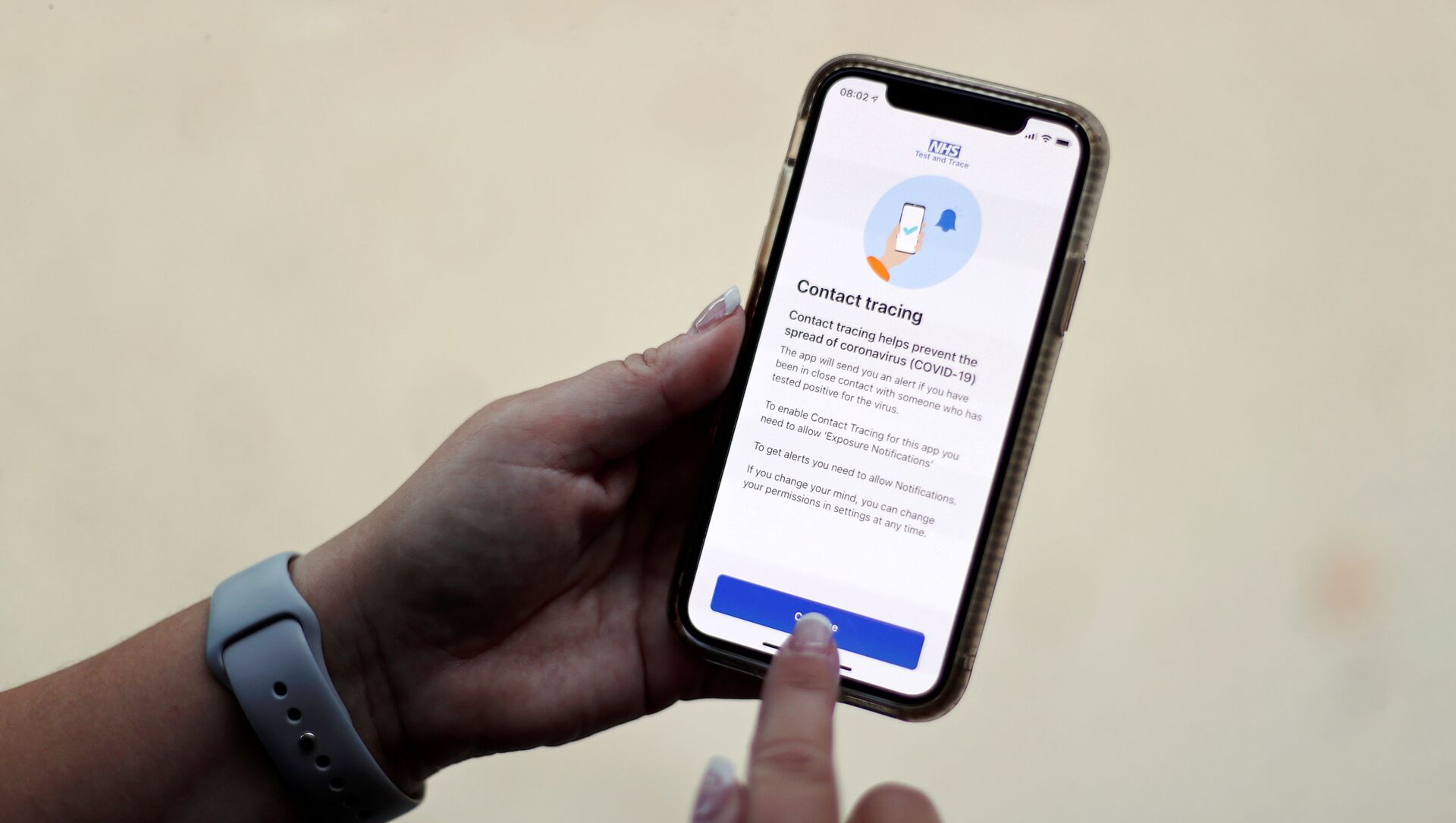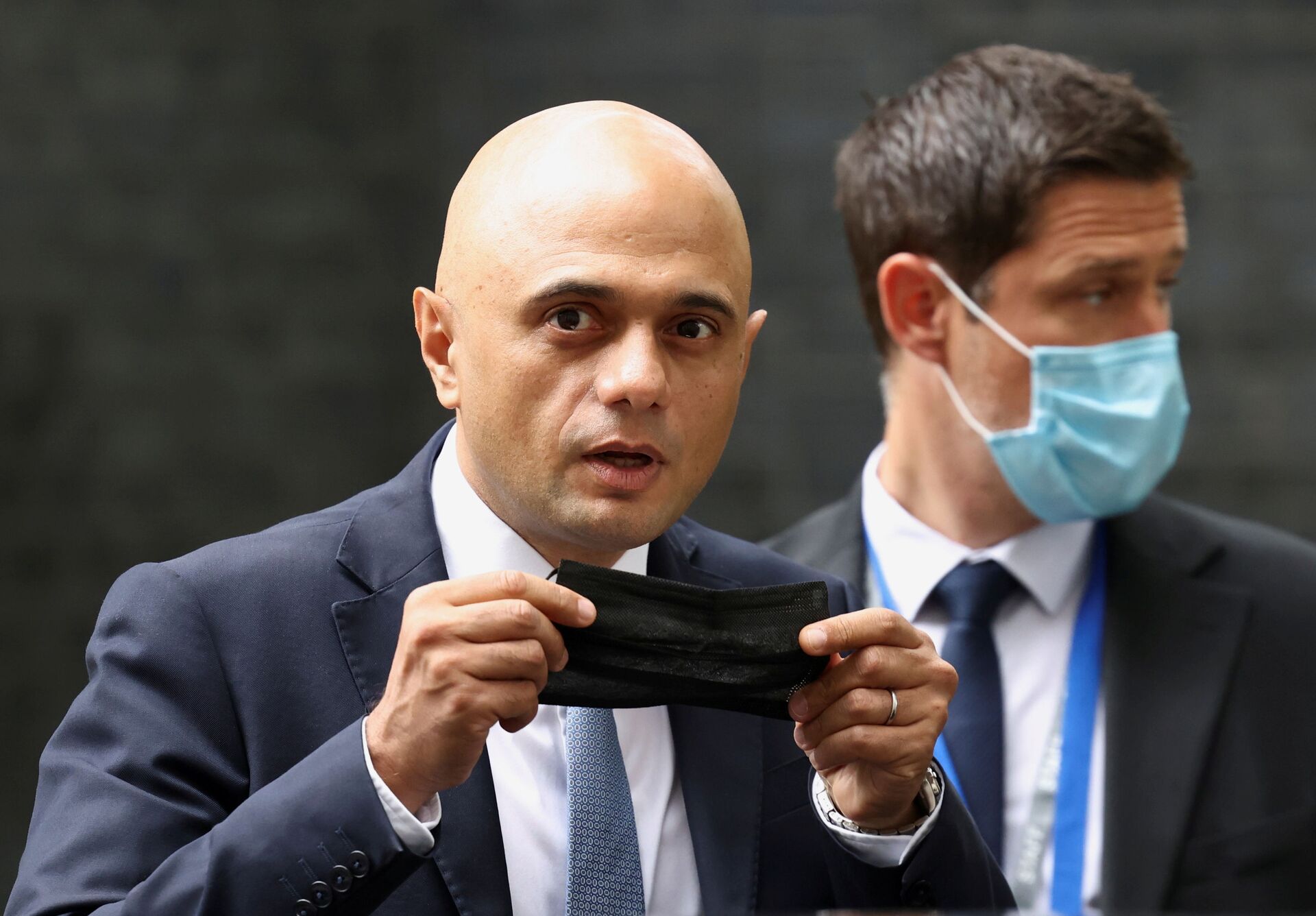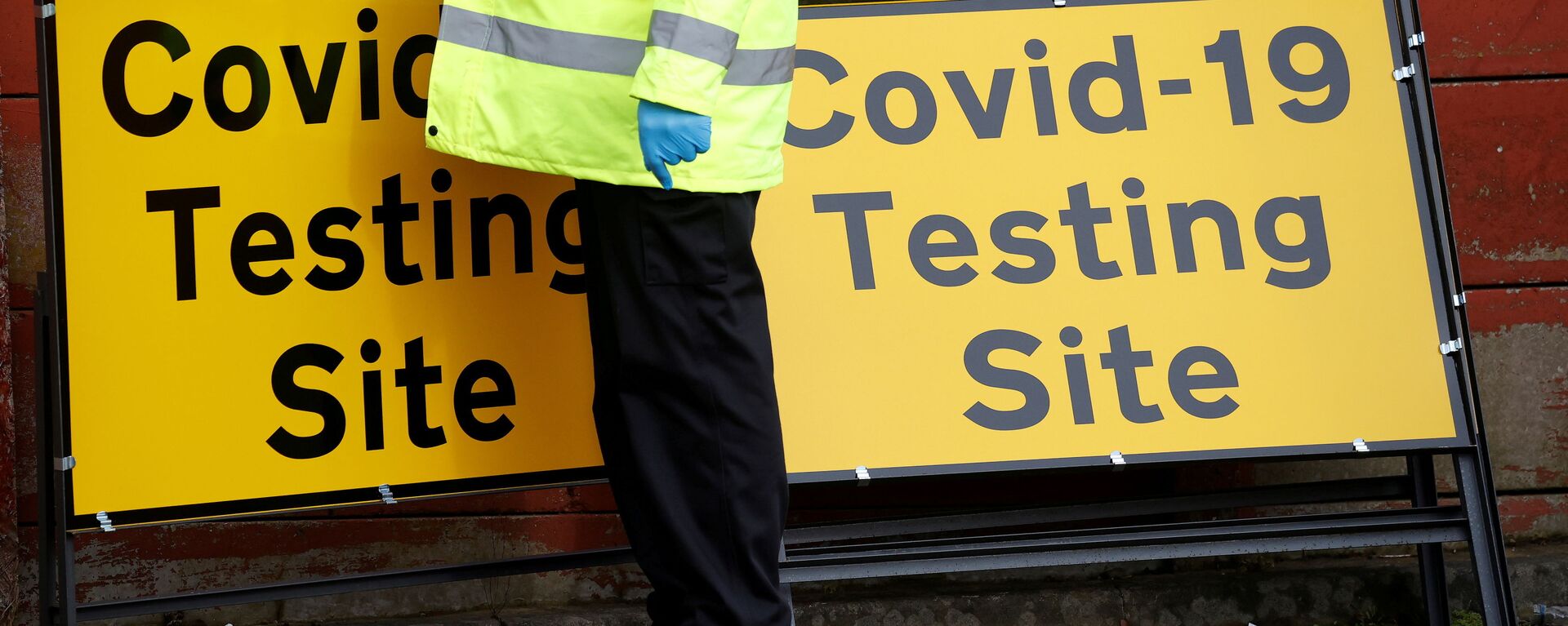UK Exempts Essential Food Supply Workers From Self-Isolation Amid 'Pingdemic' Fallout Fears
05:54 GMT 23.07.2021 (Updated: 15:15 GMT 28.05.2023)

© REUTERS / CARL RECINE
Subscribe
Over the past week, more than 600,000 Britons have been "pinged" by the National Health Service (NHS) app, telling them to stay at home for up to 10 days after they were recorded as being in close contact with COVID-positive people.
British Cabinet ministers have announced that workers critical to the food supply industry will be exempt from the so-called "pingdemic" in order to prevent supermarket shelves in the country from going empty.
The term "pingdemic" refers to members of the public being pinged by the National Health Service (NHS)'s Track and Trace app on their phones if they have been in close contact with coronavirus-positive people. It means a person who has been "pinged" must isolate for 10 days despite the NHS app's self-isolation pings only being advisory.

Britain's new Health Secretary Sajid Javid holds a face mask, as he leaves the Downing Street in London, Britain, June 30, 2021
© REUTERS / Henry Nicholls
On Thursday, Environment Secretary George Eustice and Health Secretary Sajid Javid announced plans for daily contact testing for the food and drink industries after they held an emergency summit with the industries' chiefs, who assured the ministers that problems were not widespread.
According to the ministers, supermarket delivery drivers and other critical food-supply employers will be exempt from self-isolation if they test negative for coronavirus on a daily basis and have been fully vaccinated.
Eustice also said after the gathering that "food businesses across the country have been the hidden heroes of the pandemic" and that "the last 18 months have demonstrated that we have a highly resilient food supply chain". He added that "there are sufficient food supplies in the system and people can and should shop as normal".
Javid, for his part, argued that "as we manage this virus and do everything we can to break chains of transmission, daily contact testing of workers in this vital sector will help to minimise the disruption caused by rising cases in the coming weeks, while ensuring workers are not put at risk".
Good morning, could I ask a question, my son in the UK, London, has said the shelves in #supermarkets are full of #food, so am I being misled by tweets I see of shops with empty shelves on @Twitter. pic.twitter.com/kJdGR8L9lH
— David W Cummins 🕷️#FBPE 🇪🇺 🇮🇪 #Tipperary (@DavidWCummins) July 19, 2021
Would you please take care of food supplies being delivered to UK supermarkets too? There seems to be loads of empty shelves either pic.twitter.com/cTpsXuA75Y
— ragu sanchay (@RaguSanchay) July 18, 2021
The remarks came as Britain's top supermarkets warned on Thursday that the "pingdemic" may put the country's food supplies under threat. Sainsbury's, the country's second-largest grocery giant in terms of turnover, said its staff was trying to get products on the shelves "as quickly as they can", while Iceland, a discount retailer, admitted that it had closed a number of stores due to staff shortages.
UK newspapers, in turn, carried front-page photos of empty shelves in supermarkets because it was reported that as many as 600,000 British workers had been asked to self-isolate after they were "pinged" by the Track and Trace app.
Currently, Britain has the world's seventh-highest coronavirus death toll, but a surge in new cases is forecast to be a matter of time after the 19 July lifting of restrictions, touted by Prime Minister Boris Johnson as "freedom day".



